The Cinematic Foreshadowing Of Reality Television
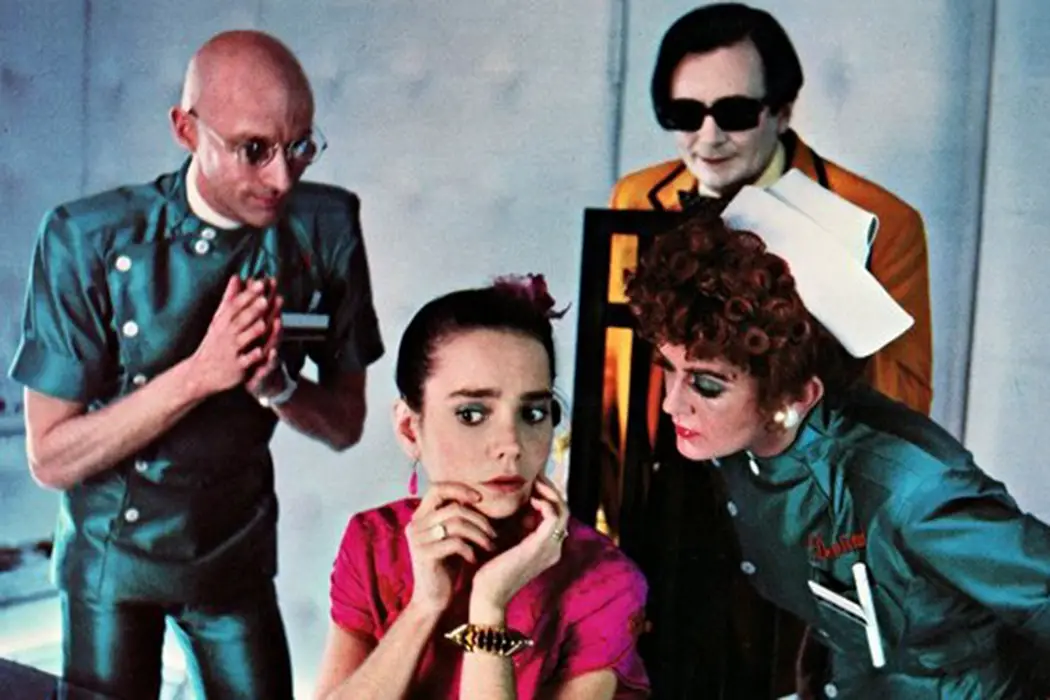
Amanda Mazzillo is a writer with an MFA in Dramatic…
Our current reality television owes itself to the film industry. How far we would go to achieve something supposedly real can be seen clearly within films inspired by the 1973 PBS miniseries, An American Family. This miniseries is truly the start of reality television, but feature films predicted how we would take this genre and expand it into something previously seen as only satirical. Satire, with its over-the-top situations, can correctly predict the future, which is true of early films based around the idea of reality television.
I’ve never really been a fan of reality television, in its overly bright and damaging MTV form, but looking at films inspired by sensational visions of real people or the concept of yearning for something real and true, I have seen how these stories can engage and attract an audience, in any era. Reality television was inspired by sensationalist biopics and documentaries, both real and fake.
Satire Becoming Real Life
The Albert Brooks film Real Life (1979) was ahead of its time. This film already knew how far our new obsession with watching life unfold through heavily edited television documentaries could take us. Albert Brooks could see clearly where this genre would lead. His film was a satire based around the PBS documentary series An American Family. Real Life was a funny film, meant to look at how ridiculous it was that America was so captivated in watching the lives of everyday people fall apart in front of our eyes.
The PBS series was criticized because observation changed what may have happened with the family. In Real Life, this was taken to the next level, where Albert Brooks, playing a fictionalized version of himself, was involved in every aspect of their lives, changing everything to make it more dramatic.
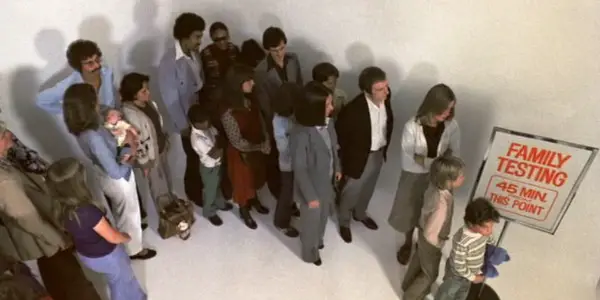
Near the ending of the film, the Albert Brooks character talks about how audiences don’t want reality; they crave fake. He decided to end the documentary by doing something fake, which ties right into today. By making fun of the concept of reality television, this film predicts just how fake and scripted it would become over the years.
The fictional version of Albert Brooks puts the lives of everyone in danger in order to achieve what he considers a perfect ending for his film. Reality television today is so focused on ratings and big moments, it is rarely focused on being an expression of reality. Real Life was groundbreaking in its portrayal of the film industry and its foreshadowing of our current television environment.
Romanticizing Real People
Another major feature in reality television is the desire to romanticize real people. Most biopics tended to tell the story of real people, while staying based in the public opinion of the subject. Early gangster films, loosely based on real people, changed the public opinion of criminals. This could be seen as a precursor to reality television, focused on figures we never would want to associate with otherwise.
One film that changed how the public felt about crime by romanticizing real people was the 1967 film Bonnie and Clyde. This film is extremely well regarded as the beginning of the New Hollywood era in cinema. By showing these characters in such a sensational light, it inspired a new era of cinema, away from the moral guidelines of the Motion Picture Production Code and into a new world of taboo violence and sexuality on screen.
Bonnie and Clyde was heavily focused on the romantic relationship between Bonnie Parker (Faye Dunaway) and Clyde Barrow (Warren Beatty), instead of focusing more on the characters as criminals in a world where gangsters could not be the heroes of their films.
Comic book audiences were also interested in real stories of criminals, especially the ones shown in the series Crime Does Not Pay, which had its demise due to the Comics Code Authority, much like the Motion Picture Production Code tried to stop the romanticizing of criminals in motion pictures.
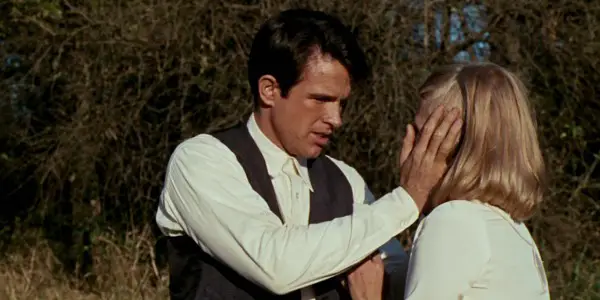
Bonnie and Clyde helped end the era of the production code, and provided the freedom for a new generation of filmmakers and audience members, filled with violence, sex, drugs, and everything else previously not allowed.
The ending of Bonnie and Clyde is still remembered for its bloody and visceral portrayal of death. This was very controversial for the time period, where everything was usually assumed but not shown.
Our current obsession with reality television and following the lives of dangerous people is not a new thing. It is something for which we have always longed. Biopics, crime comics, and reality television all want to twist the truth into something more sensational.
Reality television shows and the films that foreshadowed them feed off the desire to experience danger without ever actually being in danger. These films and reality shows choose what will best attract an audience, resulting in a skewing of reality until it becomes something more dramatic and fantastical.
The Desire of Fame in Shock Treatment
Most people do not appreciate Shock Treatment (1981), the sequel to The Rocky Horror Picture Show (1975), but it was truly a film ahead of its time. The story focused around Denton, a town entirely encased in a television production studio. Everyone in the town is either a cast member or spending their lives in the audience.
The goal of almost everyone in town is to be on a show and to obtain some version of fame. We see the differences between Brad (Cliff De Young) and Janet (Jessica Harper) from the moment we see them sitting in the audience. The film starts out showing Brad and Janet chosen to star in a game show, Marriage Maze. This type of reality television was common at the time, but as the film goes further, we see examples of shows which did not exist at the time of this film.
Reality television at the time consisted of mostly game shows and a few short form documentaries about average people. Since this film was released, reality television has exploded, creating shows which mirror what we see throughout DTV, the studio which contains the entire town of Denton.
Brad is taken to a mental hospital to star in a show, Dentonvale. This show accurately predicted our society’s obsession with medical dramas and reality television based around medical procedures. Today, we have multiple shows about the ER, childbirth, addiction, and plastic surgery.
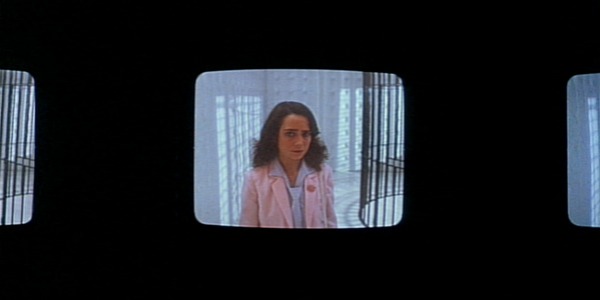
While Brad is taken to Dentonvale, Janet is being pampered to become a star. The lure of fame drives her away from Brad and towards a life of being a performer, not an audience member. She develops a following, while subsequently leaving her old life behind. This desire to be on television instead of watching from the couch is a driving force behind contemporary reality television. Everyone wants to have the fame they think they deserve. Our desire to be famous has made reality television more popular and powerful than we ever imagined.
The film also dives into the need to appease critics when the talk show, The Denton Dossier, is cancelled because the views do not align with the network as a whole. Shows are always dealing with the threat of cancellation if they aren’t getting the ratings. The rise of reality television shows resulted in scripted shows being axed in favor of new reality shows that were sure to get audiences watching.
Shock Treatment was a critical and commercial failure, but some critics have reevaluated the film as being ahead of its time when it was released in 1981. The film acts as a satire of a form of reality television, which did not exist at the time. The film might still not be well-regarded, but more and more people appreciate it for the way it looks at fame, family, and the television industry.
The Dangers of Constant Observation
The Truman Show was released in 1998, when The Real World was a major presence on MTV. In The Truman Show, we see what could happen if reality television continues to advance and change. What we see in this future is disturbing, but all too similar to what we already see on countless television shows.
Truman lives in a completely fabricated world, where he never experienced true freedom. Even though the reality stars of today are not locked away, unaware of their television lives, they still exist in a world away from true freedom. Having everything in your life monitored and edited for engaging commercial clips is not reality, but it is what audiences expect from their favorite reality shows.
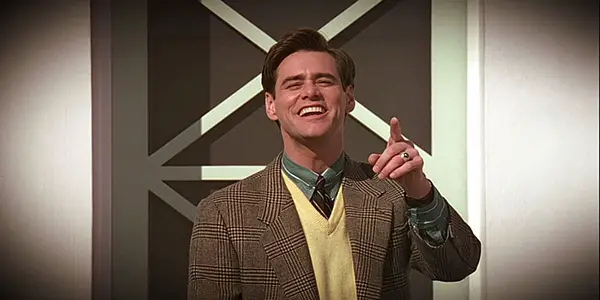
When I watched The Truman Show years after its release, I could not get over the feeling of dread and paranoia I experienced watching relationships built on fake emotions. I wondered how close we would get to this level of fake reality during my lifetime. After seeing how accurately films predicted reality television in the past, I worried we may not be too far off from isolating people for our own entertainment.
Truman discovered his life was never his own, while crowds of people watched, all rooting him on, but in reality, they had all condemned him to live this shell of a life. Even though Truman was not truly living, he was still someone an audience looked up to, while they sat at home and watched him live his life on endless screens. Maybe reality television is not to this extent, but it is closer than we would like to think.
Conclusion
Reality television is so ingrained in our culture, we sometimes cannot see how strange it is to watch the footage of cameras set up in the living spaces of people. Every time we turn on a reality television show, we are pushing ourselves into the lives of others. Films have played an important part in predicting the future, and I cannot see this changing anytime soon. In addition to reality television, satire films in general can predict the future, which makes some that much more engaging, yet hard to watch at the same time.
Do you feel films predicted the rise and change of reality television? What films focusing on reality television would you be scared to see reflected on our television schedule? Please share your answers and thoughts in the comments.
Does content like this matter to you?
Become a Member and support film journalism. Unlock access to all of Film Inquiry`s great articles. Join a community of like-minded readers who are passionate about cinema - get access to our private members Network, give back to independent filmmakers, and more.
Amanda Mazzillo is a writer with an MFA in Dramatic Writing from SCAD and a BA in Writing & Linguistics and Film Studies minor from Georgia Southern University. She enjoys writing comedy and exploring all forms of media. Her Twitter name is a bad pun: @mazzillofirefox













